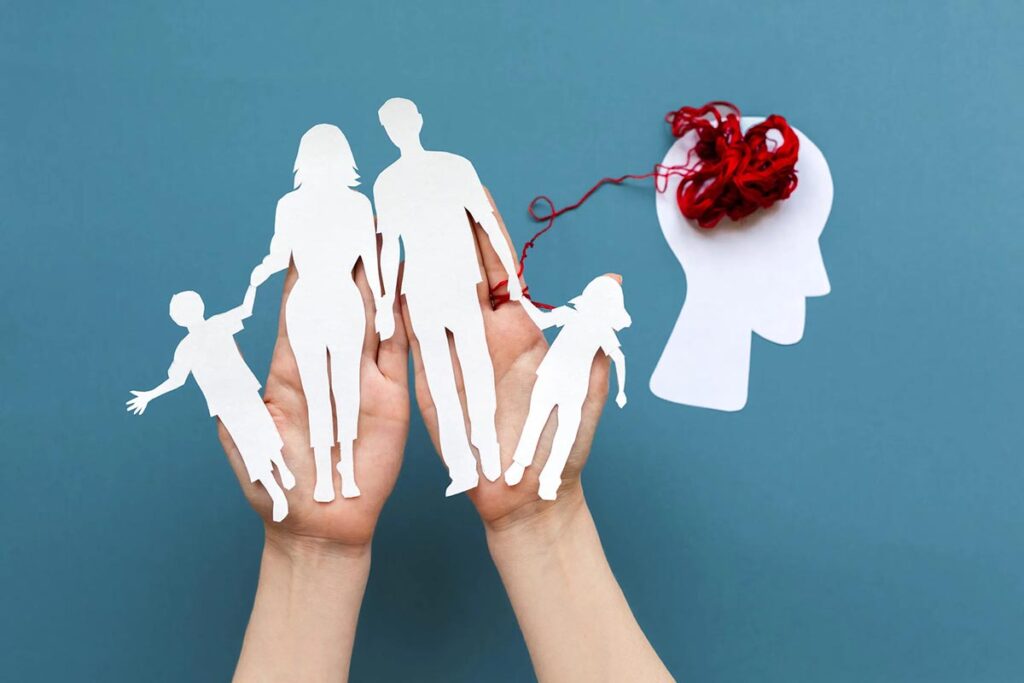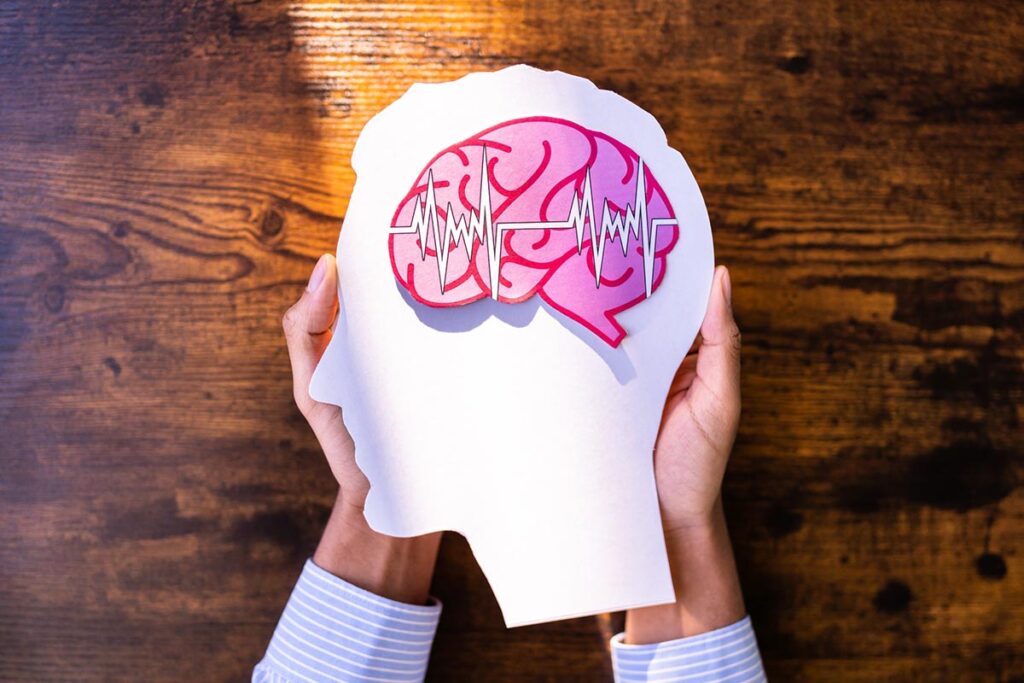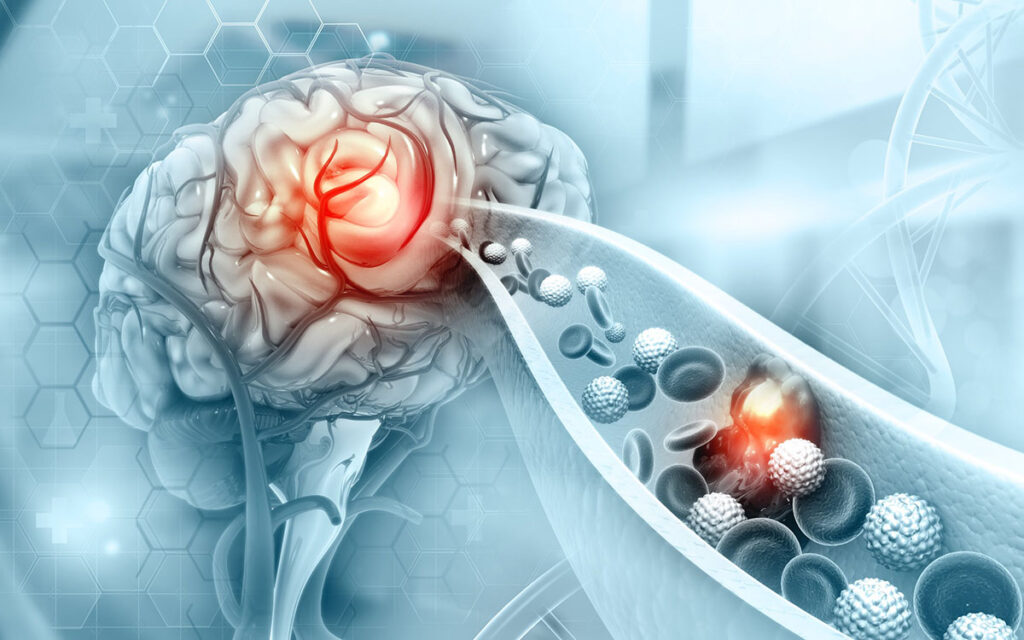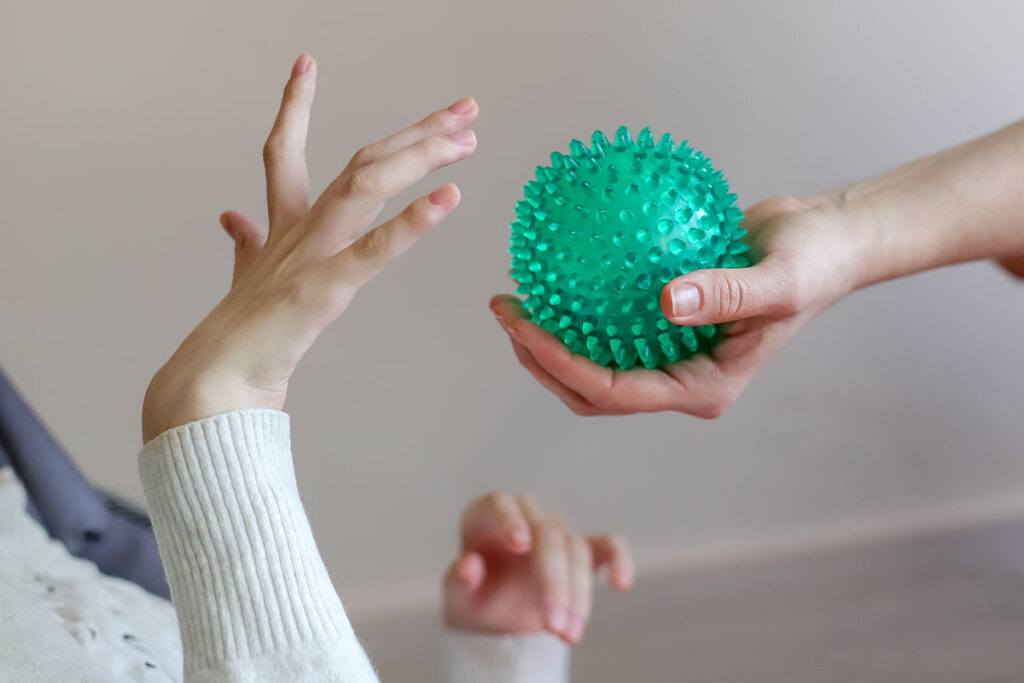How Brain Injury Occurs?
Brain damage occurs with the destruction or deterioration of brain cells, which various injuries, illnesses, or conditions can cause. A prolonged lack of oxygen to the brain is one such cause that can lead to brain damage.
Some common causes of brain injury include:
- Falls or accidents
- Head injury
- Injury caused by sports
- Physical violence
- Strangulation, choking or drowning
- Poisoning or exposure to toxic substances
- Infection
- Car or road accident
- Aneurysms
- Brain tumour
- Stroke
- Vascular accidents
- Neurological conditions
- Abuse of illegal drugs

Types of Brain Injuries
Two types of injuries are crucial to underline when discussing acquired brain injuries.
Traumatic Brain Injury
Traumatic Brain Injury (TBI) is a type of acquired brain injury that occurs due to an impact on the head. So, when the head is struck with significant force, the brain can experience physical trauma, including bruising, swelling, bleeding, and tearing of tissues due to the impact against the inside of the skull.
Traumatic Brain Injury can be classified based on the following:
- Amnesia
- Loss of consciousness
- Initial GCS Score
The severity of traumatic brain injury can range from a brief loss of consciousness to a prolonged period of unconsciousness or coma.
Non-Traumatic Brain Injuries
Non-traumatic brain injury refers to damage or injury to the brain that is not caused by a sudden and violent blow or jolt to the head, which is the hallmark of traumatic brain injury. Instead, non-traumatic brain injuries result from various causes, such as strokes, infections, tumours, exposure to toxic substances, anoxia (lack of oxygen), degenerative neurological diseases, and other medical conditions.
Unlike TBI, non-traumatic brain injuries often occur gradually, without any apparent physical trauma to the head. The symptoms and severity of non-traumatic brain injuries can vary widely depending on the cause and location of the injury.
What is Acquired Brain Injury (ABI)?

Any damage that occurs to the brain after birth is known as acquired brain injury. The resulting symptoms or functional losses will vary depending on which areas of the brain are impacted.
However, it’s important to note that acquired brain injury is not related to the following:
Congenital disorders (Cerebral Palsy, Spina Bifida, Down’s Syndrome)
Developmental disabilities or differences (Autism Spectrum)
Degenerative diseases (ALS, HD, PD, MS, Dementia)
Instead, this type of injury is caused by traumatic or non-traumatic brain injuries. When this injury occurs, it can cause a change in the neuronal activity of the brain function, which may impact the physical integrity, metabolic activity, or functional ability of the nerve cells in the brain. The term “acquired brain injury” encompasses all types of brain injuries.
Acquired brain injury can be a frightful event for affected individuals and their loved ones. However, many services, treatment options, and action steps can improve the overall situation and symptoms.
Symptoms of ABI
The physical and psychological effects of acquired brain injury can be extensive. Therefore, the symptoms may manifest either immediately or over time.
Physical Effects
Some physical effects caused by acquired brain injury include:
- Loss of consciousness lasting from several minutes to hours
- Difficulty with waking up from sleep
- Seizures
- Challenges with sensory abilities
- Clear fluids draining from the nose or ears
- Dilation of one or both pupils of the eyes
- Persistent headache
- Challenges with coordination and motor skills
- Numbness or weakness in fingers and toes
- Challenges with speech
- Nausea or vomiting
- Fatigue or drowsiness
- Challenges with keeping balance
Effects on Cognitive and Learning Abilities
Some cognitive effects caused by acquired brain injury include:
- Profound confusion
- Challenges with planning or organisation
- Challenges with attention
- Challenges with speech and verbal expression
- Challenges with memory or concentration
- Challenges with problem-solving
- Challenges with processing conversation
Mental and Behavioural Effects
Some mental and behavioural effects caused by acquired brain injury include:
- State of being dazed or disoriented
- Agitation, combativeness or other unusual behaviour
- Feelings of depression or anxiety
- Challenges with reasoning
- Mood changes or mood swings
- Change in personality
- Difficulty sleeping
- Sleeping more than usual
Causes of Acquired Brain Injury (ABI)
Acquired brain injury can be caused by various factors, ranging from direct brain injuries to illnesses and medical conditions. Understanding the causes of ABI is essential for effectively preventing and managing the condition. While the specific causes and symptoms of ABI can vary widely, a common thread among them is that they all can significantly impact a person’s life.
The most common causes of acquired brain injuries include:
- Encephalitis
- Head injury caused by motor vehicle accidents
- Cerebral oedema
- Stroke
- Hypoxia/anoxia – oxygen deprivation (Anoxic Brain Injury)
- Brain tumour
- Poisoning
- Hemorrhagic stroke
- Hydrocephalus
- Falls
- Meningitis
- Seizure disorders
- Head injury caused by physical assault
- Drug abuse
Acquired brain injury can affect individuals in many different ways. The most important part is acting as soon as possible once an individual has experienced one or multiple causes listed above.
How is ABI Diagnosed?
Acquired brain injury is a challenging condition that can be diagnosed through various methods. Healthcare providers typically use a combination of clinical assessment, medical history, and diagnostic tests to diagnose ABI. The diagnosis process can be complex and may involve multiple healthcare professionals, such as neurologists, neuropsychologists, and rehabilitation specialists.
The first step in the diagnosis process is a comprehensive medical history and physical examination. Healthcare providers will gather information about the patient’s symptoms, medical history, and recent events that may have caused the injury. They will also assess the patient’s cognitive, sensory, and motor functions to look for any signs of impairment.
In addition to the initial assessment, several diagnostic tests may be used to help diagnose acquired brain injury. These tests can help identify structural abnormalities or changes in brain activity associated with the injury. Neuropsychological testing is another vital component of the diagnosis process, which evaluates a patient’s cognitive function, including memory, attention, and language skills. This type of testing can be beneficial in assessing the severity of the injury, tracking changes in function over time, and developing an appropriate treatment plan.
While diagnosing acquired brain injury can be a challenging process, early intervention and proper treatment can significantly improve outcomes and reduce the long-term impact of the injury. Diagnosis is critical in creating an effective treatment plan that best suits the patient’s needs. It takes a coordinated effort among healthcare professionals to accurately diagnose acquired brain injury and provide the necessary care and support to the patient and their loved ones. Ultimately, acquired brain injury can profoundly impact a patient’s life, and the right diagnosis and treatment can make a significant difference in their journey to recovery.
Treatment for ABI
The treatment of acquired brain injury (ABI) is a complex process requiring multiple healthcare professionals’ coordinated effort. Treatment aims to address the patient’s symptoms, prevent further damage, and promote recovery. Treatment plans vary depending on the severity and type of injury and may include a combination of medication and neuropsychological rehabilitation.
Medication can manage symptoms associated with acquired brain injury, such as headaches, seizures, and depression. Medications may sometimes be prescribed to help improve cognitive function or reduce spasticity or muscle stiffness. However, medications alone are not sufficient in treating ABI.
How Leaf Complex Care Supports People with ABI?
At Leaf Complex Care, we promote humanised services driven by empathy and support in all aspects of our service users’ lives. Our wide range of services can impact individuals’ lives, maintaining their mental health so they can lead more independent lives.
Additionally, our clinicians always strive to identify the strengths of the individuals they’re supporting and leverage them, providing opportunities to develop their skills and talents further.
Our experienced and caring support workers can help people with complex needs while showing them the respect and empathy they deserve.
Contact us today if you or your loved one are in need of specialised support.


















